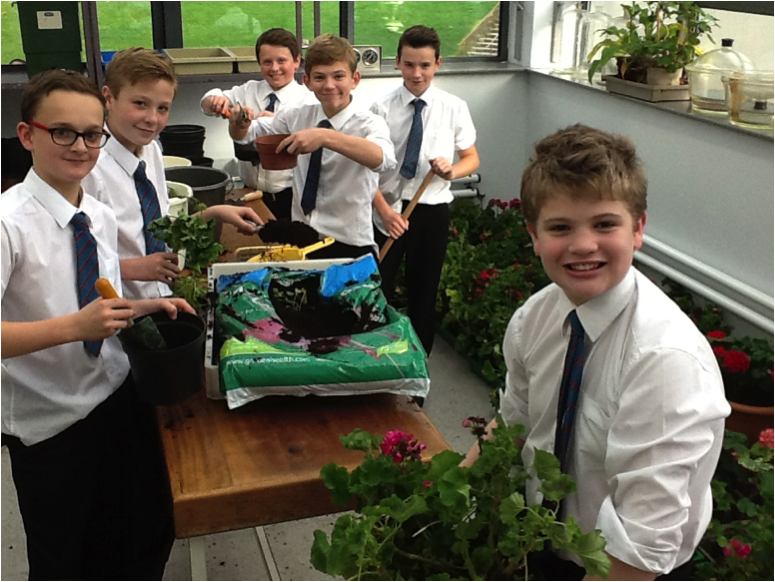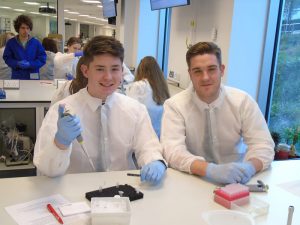Biology
Aims And Vision
Biology is the study of life and living organisms. It is concerned with their structure, behaviour and function, as well as how they grow and reproduce. It also looks at how living things are distributed and how they interact with each other, and their natural environment.
Today’s Biologists are involved in researching and understanding some of the most controversial advances in human knowledge including the cloning of embryos, designer babies and genetic engineering.
By studying Biology young people are encouraged to develop their curiosity about the living world and the courses also provide insight into how Science works. Students will hopefully be inspired, motivated and challenged, enabling them to engage with Biology in their everyday lives!
Our overall aims are:
- To provide a safe learning environment;
- Instil a sense of curiosity and wonder of the natural world;
- Promote understanding of how living systems function;
- Develop scientific skills and capabilities;
- Encourage pupils to become independent learners;
- To maximise the potential of the pupils and assist their transition to tertiary level education.
The teaching of Biology takes place within the context of the school’s overall curriculum policy. The basic content of the work taught at KS3, GCSE, and A-Level is such as to satisfy the requirements of the NI Curriculum and CCEA. The arrangement of the teaching scheme and also of the learning environment within the department is with a view to the furtherance of these aims.
Magazine Articles
Banbridge Academy Magazine 2019-2020: Biology Page
Key Stage 3
The Biology Department contributes to the combined Science course studied by pupils in Year 8 and 9. Biology is taught as a discrete subject in Year 10. At Key Stage 3 pupils are introduced to the following topics:
| Year 8 | Year 9 | Year 10 |
|
|
|
Practical and investigative skills are developed through assessment for learning activities; pupils develop their skill in presenting a scientific report together with managing information, working with others, decision making and problem solving. Lessons are resourced through the use of animations and active learning activities, Power Points, images, simulations, relevant experiments and science programmes. Homework will give the pupils the opportunity to develop skills on which they have been focussing in class and are generally set on a weekly basis. Homework includes completion tasks, research, writing up an experiment, learning definitions and revising for tests. At the end of each unit of work pupils complete a standardised test, and pupils engage in formal examinations in January and June. Throughout the year pupils are encouraged to review their individual performance and set targets for improvement.
GCSE Biology
The Biology Department contributes to the Key Stage 4 programme of study. The content of the work taught at this level is such as to satisfy the GCSE syllabus, all of which is covered in years 11 and 12. All teachers in the department follow a similar lesson sequence as outlined in the scheme of work. A common examination is set in January and June of Year 11 and a ‘Mock’ examination for year 12 in January.
Pupils have the option of following the CCEA GCSE Biology course or the Biology component of the Double Award Science course. Both of these follow the CEA specifications.
The GCSE Biology specification encourages students to develop practical skills and knowledge of science. It improves their understanding of the relationship between hypotheses, evidence, theories and explanations. It also gives students opportunities to apply their knowledge and understanding of the nature of science and the scientific process.
Students carry out nine prescribed practicals over the two year course, giving them opportunities to develop their observational, practical, enquiry and problem-solving skills.
The specification has three units:
- Unit 1: Cells, Living Processes and Biodiversity
- Unit 2: Body Systems, Genetics, Microorganisms and Health
- Unit 3: Practical Skills
Unit 3: Includes a practical skills assessment (Booklet A) and a practical theory exam (Booklet B). For Booklet A, students carry out two practical tasks in the laboratory. Booklet B is a written exam, with questions based on any of the nine prescribed practical tasks and any other practical tasks from the specification.
Double Award Science has three key assessment components:
- Biology
- Chemistry
- Physics
The specification has seven units. The Biology units are:
- Biology Unit B1: Cells, Living Processes and Biodiversity
- Biology Unit B2: Body Systems, Genetics, Microorganisms and Health
- Unit 7: Practical Skills
For each of the three sciences, Unit 7: Practical Skills includes a practical skills assessment (Booklet A) and a practical theory exam (Booklet B). For each of the three Booklet As, students carry out one practical task in the laboratory. Each Booklet B is a written exam, with questions based on any of the prescribed practical tasks and any other practical tasks from the specification.
Currently Double Award candidates are given the opportunity to sit their external Unit 1 examination in November of Year 12 with the remaining units examined the following summer.
AS/A2 Biology
Studying GCE Biology gives students a greater understanding of and respect for living organisms, Students acquire and develop skills that are valued in further and higher education, as well as in the workplace. These include analysis, evaluation, problem solving, research and an ability to understand complex processes, along with practical skills such as using a microscope,chromatography, colorimetry and aseptic technique.
Knowledge of biological processes is useful in a wide range of areas, including health-care, food production, conservation and pharmaceuticals.
The specification encourages students to:
- Develop an interest and enthusiasm for Biology (including an interest in further study and Biology-related careers).
- Develop knowledge and understanding of different areas of the subject and how they relate to each other;
- Participate in practical activities that support the specification and develop essential scientific skills;
- Appreciate how society makes decisions about scientific issues; and
- Understand how the sciences contribute to the success of the economy and society.
GCE Biology has two levels: AS and A2. There are three units in each level. Students can take the AS qualification or complete both levels to achieve the full A Level qualification. The AS units make up 40% of the full A level qualification , and the A2 units make up 60%.
AS Biology
- AS Level
- Unit AS1: Molecules and Cells
- Unit AS 2 :Organisms and Biodiversity
- Unit AS 3 : Practical Skills in AS Biology. Composed of an external assessed theory paper and 7 internally assessed practical write-ups.
A2 Biology
- Unit A2 1 : Physiology’ Coordination and Control, and Ecosystems
- Unit A2 2: Biochemistry, Genetics and Evolutionary Trends
- Unit A2 3: Practical skills in Biology. Composed of an external assessed theory paper and 5 internally assessed practical write-ups.
Pupils make use of IT to research and collate information and make presentations to their peers. Opportunities to develop thinking skills, using mathematics, literacy, communication skills and working with others are provided throughout all courses. Pupils are encouraged to transfer skills and knowledge from other subject areas and to come to an appreciation of the interconnectedness of learning.
Careers
Biology is relevant not only to the fields of science and medicine, but also to areas of commerce and public service that value problem-solving and practical skills.



